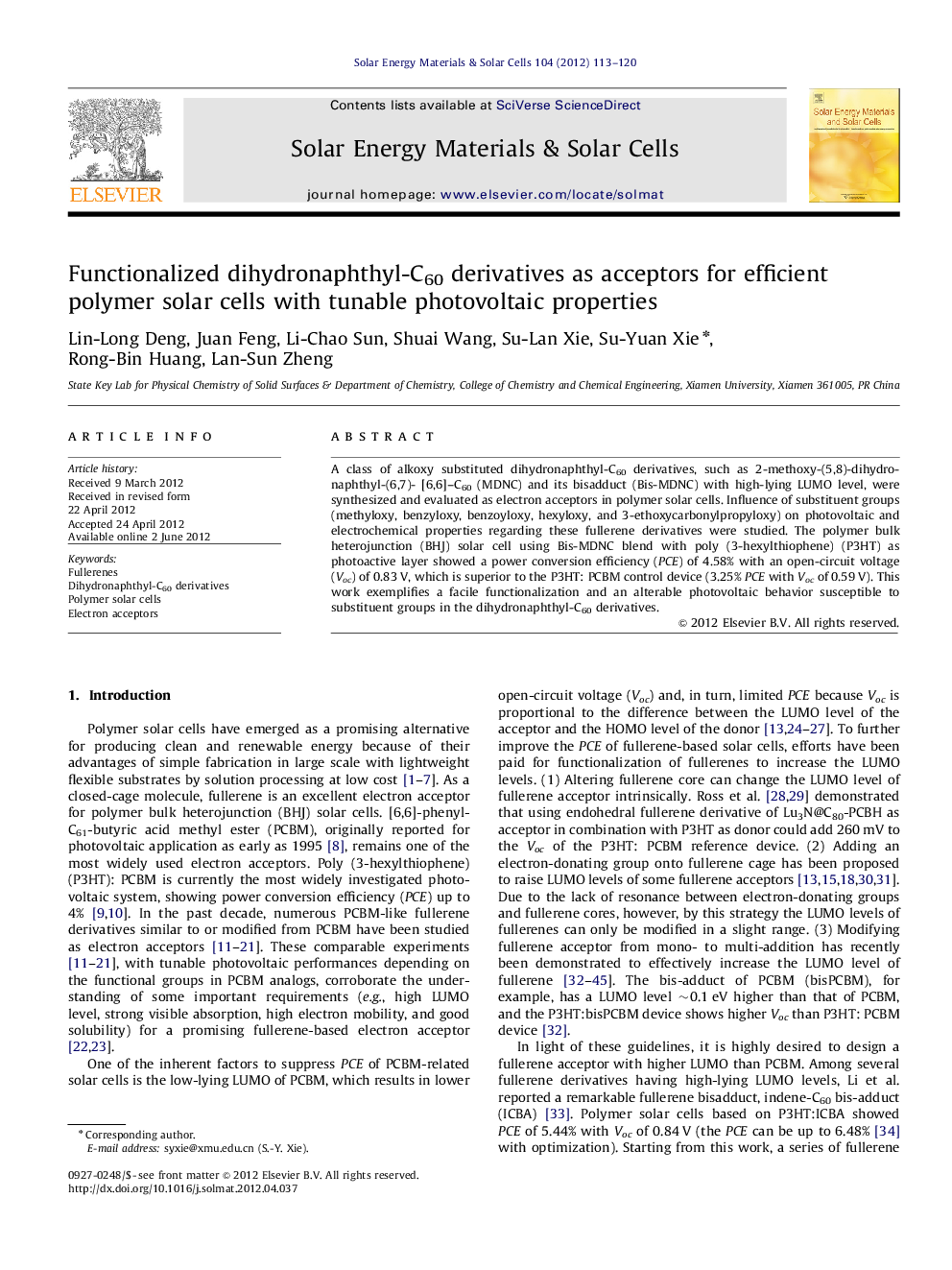| کد مقاله | کد نشریه | سال انتشار | مقاله انگلیسی | نسخه تمام متن |
|---|---|---|---|---|
| 78469 | 49332 | 2012 | 8 صفحه PDF | دانلود رایگان |

A class of alkoxy substituted dihydronaphthyl-C60 derivatives, such as 2-methoxy-(5,8)-dihydronaphthyl-(6,7)- [6,6]–C60 (MDNC) and its bisadduct (Bis-MDNC) with high-lying LUMO level, were synthesized and evaluated as electron acceptors in polymer solar cells. Influence of substituent groups (methyloxy, benzyloxy, benzoyloxy, hexyloxy, and 3-ethoxycarbonylpropyloxy) on photovoltaic and electrochemical properties regarding these fullerene derivatives were studied. The polymer bulk heterojunction (BHJ) solar cell using Bis-MDNC blend with poly (3-hexylthiophene) (P3HT) as photoactive layer showed a power conversion efficiency (PCE) of 4.58% with an open-circuit voltage (Voc) of 0.83 V, which is superior to the P3HT: PCBM control device (3.25% PCE with Voc of 0.59 V). This work exemplifies a facile functionalization and an alterable photovoltaic behavior susceptible to substituent groups in the dihydronaphthyl-C60 derivatives.
Graphical AbstractFigure optionsDownload as PowerPoint slideHighlights
► The methoxy substituted dihydronaphthyl-C60 bisadduct shows high PCE of 4.58%.
► Facile synthesis of five alkoxy substituted dihydronaphthyl-C60 derivatives.
► Tunable photovoltaic property depending on substituent group of dihydronaphthyl-C60.
Journal: Solar Energy Materials and Solar Cells - Volume 104, September 2012, Pages 113–120